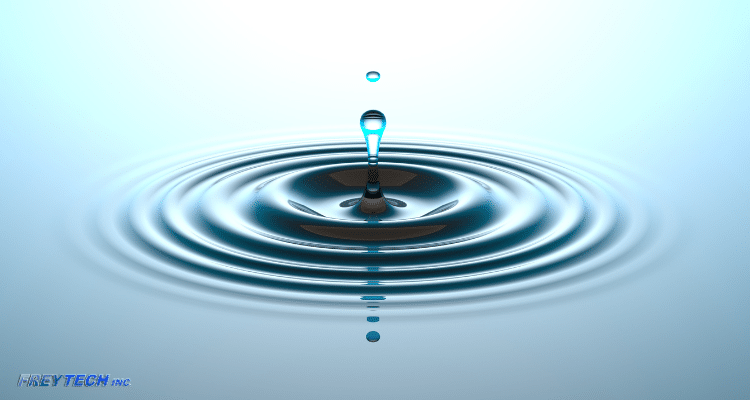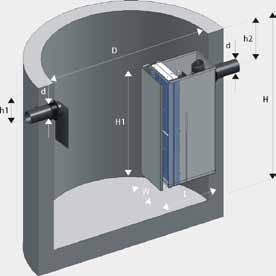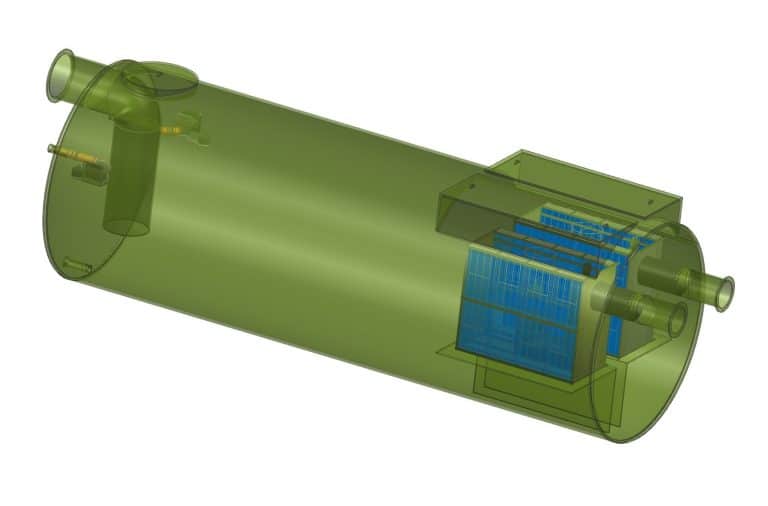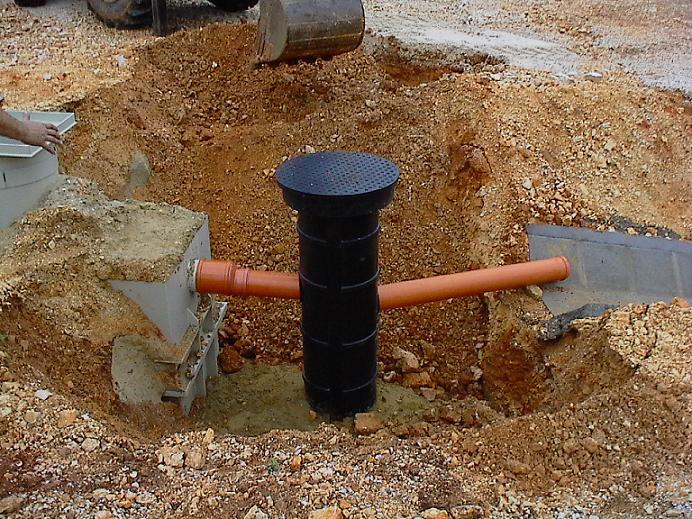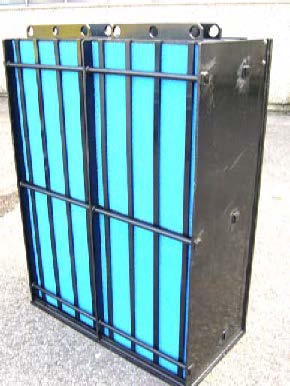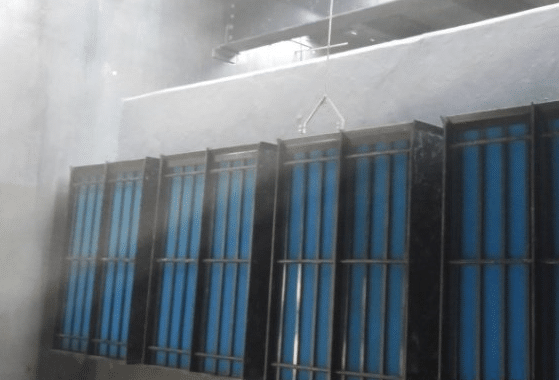Ever thought about how industries clean or remove oil from wastewater without harming the environment? As industries grow, so does the problem of oily wastewater. This is bad for both our ecosystems and health. It’s important to know how to separate oil from water to keep our water clean.
This article explores top methods for treating wastewater. We aim to stop harmful oil from reaching our water sources. This is key for keeping our environment safe.
Key Takeaways
- Oily wastewater poses significant environmental risks and requires effective removal methods.
- Understanding oil water separation techniques is essential for compliance with legislation.
- Prompt response actions can drastically reduce the long-term impact of oil spills.
- Various strategies exist, ranging from natural sorbents to advanced technological solutions.
- Regular maintenance enhances the efficiency and effectiveness of separation systems.
Understanding the Importance of Oil Removal from Wastewater
Removing oil from wastewater is key to keeping our ecosystem healthy. Sources like kitchen use and industrial operations add to oily wastewater. This makes treating it effectively very important.
Oil in water harms water quality and poses big environmental challenges. Strict rules are in place to protect our oceans and rivers.
Environmental Impact
Oil and grease in wastewater can harm the environment a lot. They can reduce oxygen levels in water by up to 70%. This is bad for fish and other sea creatures.
Toxic substances like PAHs are found in oil spills. These substances can be harmful to marine life. Over 90% of sea creatures in polluted areas have these toxins in their bodies.
Regulatory Requirements
Rules set by governments are strict about oil and grease in water. They usually don’t allow more than 10 to 15 mg/L in industrial waste. Following these rules is important for the environment.
If companies don’t follow these rules, they can face big fines. This shows how critical it is to have good systems for treating oily wastewater.
Potential Risks of Oil Pollution
Oil pollution can contaminate groundwater with harmful substances. Studies show that up to 30% of wells in polluted areas may have oil in them. This is a big problem.
More oil in water can also increase waterborne diseases. This is true for areas without good treatment systems. We need better ways to treat oily wastewater to avoid these risks.

The Role of Oil Water Separators (OWS)
Oil water separators are key in managing wastewater. They efficiently remove oil from liquid waste streams. These devices use gravity and specific physical mechanisms for oil separation. Knowing how OWS work is important for businesses looking to manage wastewater correctly.
How OWS Work
The separation process mainly relies on Stoke’s Law. This law explains how fluids behave under different conditions. Oil droplets, being less dense than water, naturally rise to the surface.
OWS devices have features that help this process. They make oil separation more efficient. Gravity-based separators, or API separators, use water turbulence to help separate oil molecules. Coalescing oil separators use materials to help oil droplets clump together, making them easier to separate.
Types of Oil Water Separators
There are two main types of oil water separators: gravity-based and coalescing oil separators. Each type meets different needs in industrial settings. Gravity-based systems work well when there’s not too much oil in the water.
Coalescing oil separators are better for situations with less oil. They use surface area interactions to improve separation efficiency. Choosing the right OWS is critical for meeting regulations and reducing environmental harm.
Freytech Inc.’s Enhanced Coalescing Technology
Freytech Inc. has led the way in wastewater treatment with its enhanced coalescing technology. This technology greatly improves oil removal from wastewater. It meets the need for efficient oil separation and follows strict environmental standards.
Key Features of Our Technology
Freytech Inc.’s enhanced coalescing technology offers top-notch oil-water separation. It can separate oil levels as low as 0.1 PPM, beating North America’s discharge limits. Our separators handle flow rates from 25 to over 640 gallons per minute, fitting various industrial needs.
They also separate emulsified oils well, something old methods often can’t do.
Comparison with Traditional Methods
Our technology outshines traditional oil water separators in many ways. Old systems can’t separate oil below 10 PPM, but ours goes below 5 PPM. Plus, our optional patented oil skimmers recover oil with 99.7% purity.
This makes our systems very efficient. Our technology helps reduce environmental harm and helps businesses meet environmental rules. This makes Freytech Inc. a top name in wastewater treatment.
Achieving Low PPM Separation Efficiency
In North America, strict discharge standards are in place. They require a maximum oil concentration of 10 PPM in treated wastewater. The goal is to reduce oil contamination effectively using advanced oily water treatment technologies.
By using these technologies, we can achieve low PPM separation. This improves the overall environmental quality.
Discharge Standards in North America
The U.S. Environmental Protection Agency sets rules for oil and grease in industrial effluents. The limits vary based on the type of discharge, ranging from 10 to 15 mg/L. Companies must meet these standards to reduce environmental impact and avoid fines.
Our Separation Capabilities
Freytech uses enhanced coalescing technology for remarkable separation. This technology consistently keeps oil concentrations below 5 PPM. Our oily water treatment technologies are ideal for industries with a lot of oily wastewater.
Features like hydrocyclone oil separators remove up to 99% of oil. They also handle high-flow volumes efficiently, saving space.
Benefits of Using Freytech OWS Systems
Freytech’s Oil Water Separator (OWS) systems are top-notch for managing wastewater. They help industries save money while protecting the environment. These systems are designed to be efficient, saving on costs and meeting strict standards for oily wastewater treatment.
Cost-Effectiveness
Choosing Freytech OWS systems means big savings over time. They efficiently separate oily contaminants, cutting down on the need for expensive external treatments. This way, businesses stay compliant and avoid fines, freeing up money for important work.
These systems last a long time, which means less money spent on replacements. This makes them a smart choice for managing wastewater.
Longevity and Maintenance
Freytech OWS systems are built to last with little upkeep needed. Their coalescing media can handle many cycles without losing performance. This means less time and effort spent on maintenance, keeping operations smooth.
Using these systems makes wastewater treatment easier and more sustainable. It’s good for the planet and helps businesses save money.
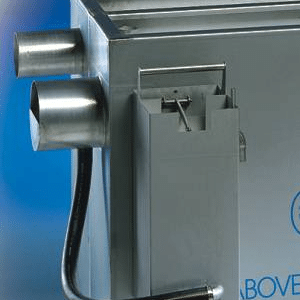
Applications of Freytech OWS Packages
Freytech’s oil water separation systems offer efficient solutions in many sectors. They meet strict environmental standards. These systems tackle oil pollution challenges in various settings, keeping treated water safe.
For Industrial Use
In industrial settings, like manufacturing and automotive, treating wastewater is key. Freytech OWS packages handle up to 1000 Imperial gallons per minute. They’re perfect for big operations.
Our separators are great at separating oil and water, even when it’s mixed. They can start with 2000 PPM and get it down to less than 5 PPM. This technology helps facilities meet tough regulations.
For Municipal Wastewater Treatment
Municipal uses also benefit from Freytech OWS systems. They can lower oil levels to as low as 0.1 PPM. This meets the CAN/ULC-S656 standard, which is very strict.
These systems fit smaller places like workshops and car washes. They show how versatile and effective these systems are in different places.
The Importance of Oil Skimmers
Oil skimmers play a key role in the oil recovery process. They are used in wastewater treatment and during spill responses. These systems remove the oil layer on the water’s surface, keeping the water quality high.
Modern oil recovery technologies have improved a lot. They work better in different environments now.
How They Function
Oil skimmers use physical methods to separate oil from water. They don’t need harmful chemicals. They can handle rough waters and industrial settings.
There are different types of oil skimmers. Tube skimmers, disc skimmers, and belt skimmers are some examples. Each is designed for specific uses. The efficiency of these devices can vary, but high-quality models can remove a lot of oil.
Advantages of Our Patented Oil Skimmer
Freytech’s patented skimmer has many benefits. It collects purified oil at 99.7% purity. This is very important in big spill responses.
Using skimmers also saves money. They prevent equipment clogging and need less maintenance. This leads to better water quality and saves energy in the long run.
Environmental Compliance and Sustainability
Managing wastewater in industries like oil and gas is a big responsibility. It’s important to follow environmental rules set by groups like the Environmental Protection Agency (EPA). These rules help keep our water and air clean.
Importance of Compliance
Following the rules is key for oil and gas companies. They produce a lot of wastewater, so they need good treatment methods. By doing this, they can avoid fines and help the environment by using less fresh water.
Following the rules also means they can use treated water for farming. This can bring in extra money for the company.
Freytech’s Commitment to Sustainability
Freytech is all about making things better for the planet. We use new technology to clean wastewater. Our methods make the water safer for the environment.
We also use energy-saving tools and update our tech often. This helps us be more eco-friendly. To learn more, check out Freytech sustainability practices.
Recycling Separated Oil Effectively
Recycling separated oil is key in managing wastewater. It brings both environmental and economic benefits. Businesses can use or sell this oil, turning waste into profit. This approach helps companies follow environmental rules and work better overall.
The Economic Value of Recycled Oil
Recycling oil has big economic benefits. Companies can cut water disposal costs by up to 30%. This also helps avoid legal issues from not following environmental rules.
Using advanced oil separators cuts down on hazardous waste. This saves money on disposal. Plus, it makes equipment last longer, saving on maintenance and repairs.
Easy Recycling Processes
Streamlining oil recycling makes it easier for companies to manage wastewater. Technologies like coalescing plate separators can separate oil up to 95% efficiently. This means more oil can be recovered.
Integrating separators into operations, like closed-loop wash racks, saves resources. It also cuts down on water use. This boosts ecological sustainability and supports long-term success.
Ensuring Efficient Maintenance of OWS
Regular maintenance of oil water separators is key to their long life and good performance. It ensures they work well and meet environmental rules. Cleaning and reusing coalescing media is a big part of this.
Cleaning and Reusing Coalescing Media
Cleaning the coalescing media regularly is vital. Its design helps catch and separate oil droplets. Keeping it clean helps liquids flow smoothly, without problems.
This makes the system work better and last longer. It’s a smart way to keep oil water separators efficient.
Regular Maintenance Tips
Sticking to a maintenance schedule is important. You should check the systems often for sludge and make sure they meet standards. For example, models like SPT-20 and SPT-50 need regular checks.
Following these tips can cut down on failures by half. It keeps the system running well and meets environmental rules.
Contact Freytech Inc. for Solutions to Remove Oil From Wastewater
Looking for effective wastewater treatment? Reaching out to the right experts is key. Freytech Inc. is ready to help with innovative solutions for oil removal from wastewater. Our systems, like advanced oil water separators and oil skimmers, meet industry standards and tackle your unique challenges.
Our Customer Support
Customer satisfaction is our main goal at Freytech. For any questions about our technology or support, check out our contact information for solutions. Our team is ready to offer guidance that fits your needs, whether it’s about meeting regulations or boosting efficiency.
Wastewater treatment can be complex, but we get it. In industries like mining and food processing, oil is often a problem. With Freytech’s support, our innovative products help with sustainable practices and effective oil separation. This leads to better environmental results. Contact us today to see how we can help with your wastewater treatment needs.
